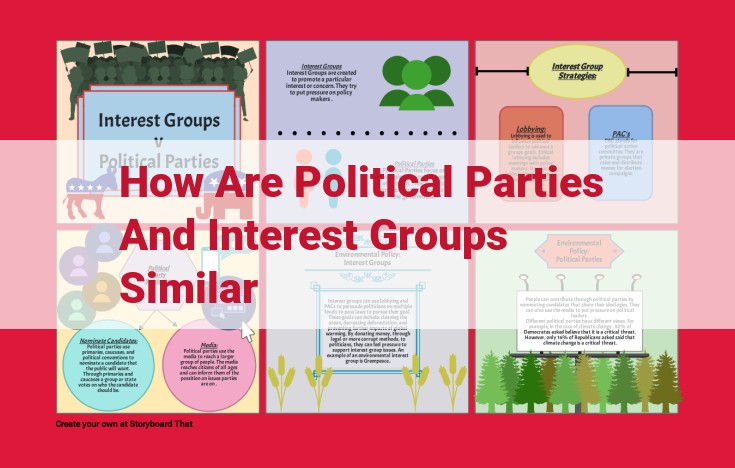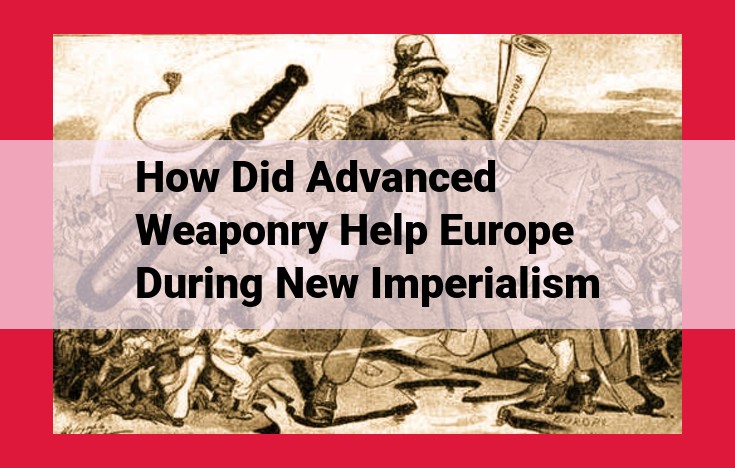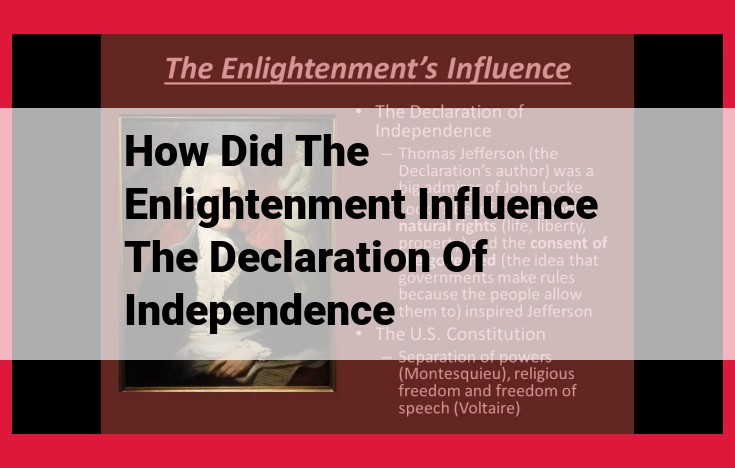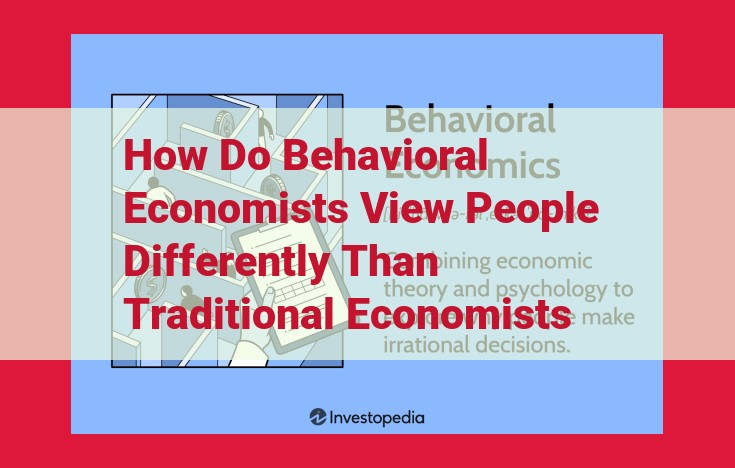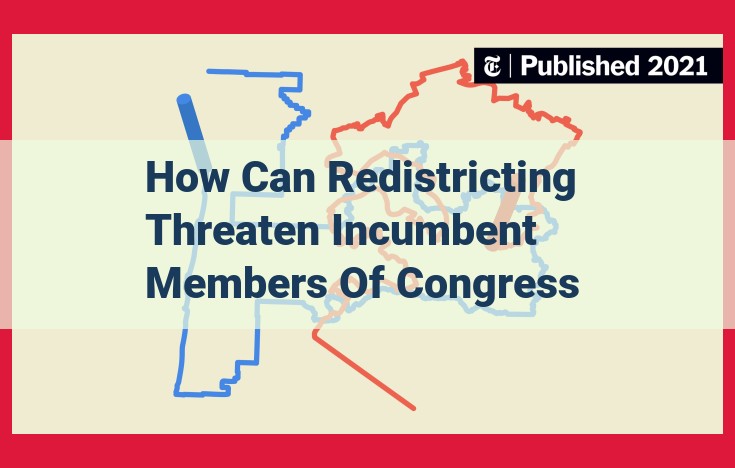Both political parties and interest groups maintain a close relationship with government agencies, ensuring their presence in policy discussions. They rely on lobbying and campaign finance to advance their agendas, recognizing the importance of relationships with lawmakers. These organizations effectively shape policy outcomes through their direct involvement in political processes.
The role of the Democratic and Republican parties in influencing political outcomes.
The Role of Political Parties in Shaping Political Outcomes
In the intricate landscape of political influence, political parties stand as towering forces, wielding immense power to shape the outcomes of elections and policy decisions. The Democratic and Republican parties serve as the primary conduits through which individuals and organizations channel their political aspirations and ambitions.
Each party represents a distinctive ideological orientation, reflecting the shared values, beliefs, and policy preferences of its members. Democrats generally embrace progressive policies that prioritize social justice, equality, and economic interventionism. Republicans, on the other hand, tend to favor conservative values, limited government intervention, and free-market principles.
Party affiliation has a profound impact on the policy preferences of individuals. Studies have shown that party identification is a strong predictor of views on issues such as healthcare, taxation, environmental protection, and gun control. Party leaders play a crucial role in shaping the party platform, which serves as a blueprint for the party’s positions on key issues.
Moreover, party affiliation influences the electoral strategies adopted by candidates. Candidates adjust their campaign messages and tactics to appeal to the core demographics and ideological leanings of their party’s base. The ability of a party to mobilize its base and attract swing voters is critical to electoral success.
The Democratic and Republican parties are not monolithic entities, but rather coalitions of diverse organizations and individuals. Within each party, there are factions and wings representing differing ideological perspectives. The interplay between these factions shapes the internal dynamics and decision-making processes of the parties.
Navigating the complex world of political influence requires an understanding of the crucial role played by political parties. Their ability to shape public opinion, mobilize voters, and influence policy outcomes makes them indispensable actors in the political arena.
How Party Affiliation Shapes Policy Preferences and Electoral Strategies
In the ever-shifting political landscape, party affiliation plays a pivotal role in shaping individuals’ policy preferences and electoral strategies. From the breadth of issues they prioritize to the candidates they support, party affiliation serves as a guiding force in the complex world of politics.
For starters, party affiliation heavily influences individuals’ policy preferences. Democrats and Republicans often hold starkly contrasting views on a wide range of issues, including healthcare, climate change, and taxation. These differences stem from the underlying ideologies of the two parties, with Democrats generally favoring liberal policies that emphasize social equality and government intervention, while Republicans tend to advocate for conservative policies that prioritize individual liberty and limited government.
Furthermore, party affiliation also affects electoral strategies. Loyal partisans are more likely to vote for candidates from their own party, even if they disagree with some of their positions. This “party line” voting is driven by a sense of identity and loyalty, as individuals seek to align themselves with a group that shares their core values and beliefs.
Additionally, party affiliation influences the strategies employed by candidates. Democrats and Republicans tailor their campaigns to appeal to their respective base of supporters. Democrats often focus on mobilizing minority voters, low-income earners, and young people, while Republicans concentrate on appealing to white voters, higher-income earners, and older adults.
In conclusion, party affiliation is a powerful force that shapes the political landscape. It influences individuals’ policy preferences, electoral strategies, and the way candidates engage with voters. Understanding the role of party affiliation is crucial for navigating the complexities of modern politics and making informed decisions about who to support and what policies to back.
The Diverse Landscape of Interest Groups: A Spectrum of Influence
Amidst the intricate tapestry of political influence, interest groups emerge as a kaleidoscope of organizations with varying ideologies, tactics, and agendas. These groups, ranging from behemoth trade associations to grassroots advocacy networks, represent a broad spectrum of interests and perspectives that shape the political landscape.
Their diversity extends across the political spectrum, encompassing business lobbyists, environmental activists, labor unions, civil rights organizations, and everything in between. Each group brings its unique set of goals and priorities to the table, advocating for policies that align with their constituents’ interests.
Some interest groups, such as the American Civil Liberties Union, focus on protecting individual rights, while others, like the Chamber of Commerce, prioritize economic growth. Environmental groups like the Sierra Club advocate for conservation, while faith-based organizations such as the National Council of Churches promote social justice.
The sheer diversity of interest groups highlights the pluralistic nature of the American political system. Their competing views and strategies create a dynamic environment where no single entity holds absolute sway. Instead, policy outcomes are often the result of negotiation and compromise among these varied perspectives.
Moreover, the influence of interest groups can vary depending on their resources, membership base, and political connections. Some groups, such as the National Rifle Association, have amassed considerable political clout through aggressive lobbying efforts. Others, like the American Association of Retired Persons, leverage their large membership to sway policymakers.
Understanding the diversity of interest groups is essential for navigating the political landscape. These organizations play a crucial role in shaping public opinion, lobbying for legislation, and influencing policy decisions. Their collective voices ensure that a range of perspectives are represented in the political process.
The Landscape of Political Influence: Organizations with Closeness Scores of 8-10
The realm of politics is a complex ecosystem where diverse organizations wield considerable influence. Among them, interest groups stand out as influential players, deploying a wide range of tactics to advance their agendas and shape public policy.
Understanding Interest Groups
Interest groups represent organized bodies of individuals with shared concerns or goals. They operate across a broad political spectrum, from ideological organizations to business associations and citizen action groups. Their principal objective is to influence government decisions that impact their members’ interests.
Tactics for Political Influence
Interest groups employ various strategies to maximize their influence:
-
Lobbying: Interest groups engage in direct communication with elected officials, providing information, advocating for policy positions, and building relationships. They often hire lobbyists, individuals with expertise in navigating the political landscape.
-
Campaign Finance: Contributing to political campaigns is a potent mechanism to gain access to candidates and build favor. Interest groups donate sizable funds to support candidates who align with their priorities.
-
Grassroots Mobilization: Interest groups mobilize their members to engage in public demonstrations, letter-writing campaigns, and petitions. This strategy generates public pressure on policymakers to address their concerns.
-
Coalitions and Alliances: Forming coalitions with other interest groups with shared goals amplifies their collective influence. By coordinating efforts, they can maximize resources and increase their bargaining power.
-
Legal Advocacy: Interest groups utilize the legal system to challenge government policies or represent members’ interests in court cases. They file lawsuits, submit amicus briefs, and participate in regulatory proceedings.
Impact on Policymaking
The tactics employed by interest groups have a significant impact on policymaking. Their access to decision-makers, financial resources, and ability to mobilize large constituencies enable them to shape policy outcomes that benefit their members. However, the influence of interest groups can also raise ethical concerns regarding the transparency of decision-making and the potential for corruption.
The Impact of Lobbying and Campaign Finance on Policymaking: Unraveling the Web of Influence
In the labyrinth of political influence, lobbying and campaign finance emerge as potent forces that shape the course of policymaking. These tools grant special interests an unparalleled platform to exert their sway over government decisions, weaving a complex tapestry of relationships that can often overshadow the will of the people.
Lobbying, the art of persuasion by paid advocates, targets lawmakers at the federal, state, and local levels. Lobbyists, representing a wide spectrum of industries, corporations, and advocacy groups, bombard officials with information, research, and personal appeals. Their goal? To influence legislation, regulations, and policy decisions that benefit their clients’ interests.
Campaign finance, on the other hand, involves the flow of funds into political campaigns. Through donations, super PACs, and independent expenditures, wealthy individuals, corporations, and special interest groups can exert financial pressure on candidates. This financial leverage often translates into policy concessions and favorable treatment once those candidates are elected.
The impact of these practices on policymaking is undeniable. Lobbyists provide lawmakers with valuable information and expertise, shaping their understanding of complex issues. They also build personal relationships with officials, creating a sense of indebtedness that can influence decision-making.
Similarly, campaign finance contributions can create a perception of obligation. Candidates who receive significant donations from specific groups or industries may feel pressure to reciprocate with favorable policies. This can result in policy capture, where private interests unduly influence government actions.
The consequences of this undue influence can be far-reaching. Industries with deep pockets can sway policy in their favor at the expense of the broader public interest. For example, the fossil fuel industry has successfully lobbied against regulations that would limit carbon emissions, contributing to the climate crisis.
Moreover, campaign finance laws often favor the wealthy and well-connected, creating a disproportionate representation of their interests in government. This undermines the principle of equal representation and can lead to policies that benefit the few at the expense of the many.
The impact of lobbying and campaign finance on policymaking is a sobering reminder of the power of special interests in our political system. While these practices can provide valuable insights and support, they must be carefully regulated to prevent them from undermining the integrity of our democracy. Only by ensuring that policy decisions are made in the best interests of all citizens can we truly achieve a government of, by, and for the people.
The Role of Independent Agencies in Enforcing Campaign Finance Laws
Independent agencies play a critical role in maintaining the integrity of our electoral process by monitoring elections and enforcing campaign finance laws. These nonpartisan entities have the authority to investigate allegations of wrongdoing, impose fines, and even refer cases for criminal prosecution.
One key independent agency is the Federal Election Commission (FEC). The FEC’s primary mission is to ensure that candidates and political committees comply with campaign finance laws. This includes enforcing limitations on campaign spending, contributions, and independent expenditures. The FEC also regulates political advertising and disclosure requirements.
Another important independent agency is the Office of Special Counsel (OSC). The OSC investigates allegations of Hatch Act violations. The Hatch Act prohibits federal employees from engaging in partisan political activities, such as making political donations or campaigning for candidates.
Independent agencies play a vital role in safeguarding our electoral process. By monitoring elections and enforcing campaign finance laws, these agencies help to ensure that our elections are fair and competitive, and that the influence of money in politics is kept in check.
How Independent Agencies Enforce Campaign Finance Laws
Independent agencies have a range of tools at their disposal to enforce campaign finance laws. These tools include:
- Administrative fines: Independent agencies can impose fines on candidates and political committees that violate campaign finance laws. The amount of the fine can vary depending on the severity of the violation.
- Civil lawsuits: Independent agencies can also file civil lawsuits against candidates and political committees that violate campaign finance laws. If the lawsuit is successful, the candidate or committee may be ordered to pay damages, disgorge ill-gotten gains, or be barred from running for office in the future.
- Criminal referrals: In cases of serious violations, independent agencies may refer cases to the Department of Justice (DOJ) for criminal prosecution. The DOJ can seek fines, imprisonment, or both against individuals who violate campaign finance laws.
The Importance of Independent Agencies
Independent agencies play a crucial role in maintaining the integrity of our electoral process. By monitoring elections and enforcing campaign finance laws, these agencies help to ensure that our elections are fair and competitive, and that the influence of money in politics is kept in check.
How the government regulates political activity and investigates corruption.
The Watchdogs of Political Integrity: How the Government Regulates Political Activity and Investigates Corruption
In the intricate tapestry of political influence, government agencies play a crucial role in ensuring fairness and accountability. They act as watchdogs, monitoring political activity and investigating any hint of corruption that threatens to undermine the integrity of our democratic system.
The Federal Election Commission (FEC) stands as the primary regulator of campaign finance. This independent agency enforces laws that set limits on campaign contributions and expenditures, ensuring transparency and preventing any undue influence from special interests. Through audits, investigations, and enforcement actions, the FEC ensures that candidates and political organizations play by the rules.
Complementing the FEC’s focus on campaign finance, the Department of Justice (DOJ) has broad authority to investigate corruption and political malfeasance. Its Public Integrity Section is dedicated to prosecuting violations of campaign finance laws, including bribery, extortion, and fraud. Through grand juries and complex investigations, the DOJ works to uncover and punish those who attempt to corrupt the political process.
Beyond its criminal enforcement role, the DOJ also oversees the Foreign Corrupt Practices Act (FCPA), which prohibits American companies and their executives from bribing foreign officials. This law serves as a powerful deterrent against corruption in international business and trade.
The Government Accountability Office (GAO), a nonpartisan watchdog agency, audits and investigates the use of public funds in political campaigns. Its reports and recommendations provide valuable insights into how taxpayer dollars are being used, promoting transparency and fiscal responsibility.
In summary, government agencies are indispensable pillars of our democratic system, guarding against corruption and ensuring fair political competition. The FEC, DOJ, GAO, and other watchdogs work tirelessly to uphold the integrity of our elections and to hold those accountable who seek to undermine it. Through their investigations and enforcement actions, they help to protect the public trust and preserve the principles of fairness and accountability in our political landscape.
The role of the judiciary in interpreting campaign finance laws and resolving disputes.
** The Courts: Guardians of Campaign Finance and Political Integrity**
In the complex landscape of political influence, the judiciary stands as an impartial arbiter, interpreting campaign finance laws and resolving disputes to ensure the integrity of the electoral process. Through their rulings, courts have shaped the political landscape, influencing the way elections are conducted and the role of money in politics.
Interpreting Campaign Finance Laws
Campaign finance laws are designed to prevent corruption and promote transparency in elections. The judiciary plays a crucial role in interpreting these laws, determining their scope and impact. Courts have ruled on the constitutionality of campaign finance limits, disclosure requirements, and the role of independent expenditures. Their decisions have clarified the rules of the game, ensuring that candidates and interest groups operate within legal boundaries.
Resolving Election Disputes
Elections inevitably lead to disputes, from allegations of voter fraud to challenges to election results. Courts provide a forum for resolving these disputes fairly and impartially. They assess the evidence, determine the facts, and issue rulings that uphold the integrity of the electoral process. By providing a neutral ground for resolving disputes, the judiciary helps maintain public trust in the electoral system.
Landmark Cases
Numerous landmark cases have shaped the judiciary’s role in campaign finance. Citizens United v. FEC (2010) struck down restrictions on corporate spending in elections, opening the floodgates to unlimited independent expenditures. McCain-Feingold (2002) regulated soft money and prevented political parties from coordinating with outside groups. Buckley v. Valeo (1976) established the principle of free speech in campaign finance, limiting the government’s ability to restrict spending on political campaigns.
Future of Judiciary Influence
As the political landscape evolves, the judiciary will continue to face challenges and opportunities in its role as the guardian of campaign finance and political integrity. Future court cases may address the influence of social media on elections, the regulation of dark money, and the impact of technology on the electoral process. By upholding the rule of law, the judiciary will continue to play a critical role in ensuring a fair, transparent, and corruption-free political system.
The Impact of Court Decisions on the Political Landscape
Throughout history, the judiciary has played a pivotal role in shaping the political landscape. Court decisions have not only interpreted campaign finance laws but also resolved disputes that have profound implications for the way we conduct our elections and govern ourselves.
One of the most significant court decisions in recent history was the Supreme Court’s ruling in Citizens United v. Federal Election Commission (2010). This decision struck down limits on corporate and union spending on political campaigns, unleashing a torrent of outside money into the political process. The result has been a dramatic increase in the influence of wealthy donors and special interests on elections.
Another landmark decision was the Supreme Court’s ruling in Shelby County v. Holder (2013), which gutted a key provision of the Voting Rights Act of 1965. This decision made it easier for states to implement restrictive voting laws, which have disproportionately impacted minority voters. As a result, voter turnout has declined in recent elections, particularly among marginalized communities.
Court decisions have also had a major impact on the way we regulate lobbying. In McCullen v. Coakley (2014), the Supreme Court struck down a Massachusetts law that created buffer zones around abortion clinics. This decision made it easier for anti-abortion activists to engage in protests and harassment near clinics.
These are just a few examples of the ways that court decisions have shaped the political landscape. The judiciary continues to play a critical role in interpreting the laws that govern our elections and the conduct of our government. As such, it is essential that we have judges who are independent, impartial, and committed to upholding the rule of law.
The Impact of Traditional and Social Media on Political Discourse
In the intricate tapestry of political influence, traditional and social media play a pivotal role in shaping the narrative that surrounds us. Traditional media outlets, such as television, radio, and newspapers, have long been gatekeepers of information, influencing the public’s understanding of political events and candidates.
Social media, on the other hand, has emerged as a powerful force, providing a platform for both individuals and organizations to share their perspectives. Its decentralized nature has disrupted traditional media’s monopoly on information dissemination, allowing for a wider range of voices to be heard.
Influence on Public Opinion
Traditional media, with its reach and credibility, can frame political issues in a way that influences public opinion. Television networks, for example, have the power to shape the narrative through their selection of stories and the way they present them. Social media, too, plays a role in shaping public sentiment, particularly through trending topics and viral content. These platforms can amplify certain issues and perspectives, potentially influencing how people feel about candidates and policies.
Mobilization and Activism
Both traditional and social media serve as potent tools for mobilizing political action. Traditional media can raise awareness of issues and galvanize supporters, while social media provides a platform for grassroots movements to organize and mobilize. The #MeToo movement, for instance, gained significant traction through social media, empowering victims to share their stories and demand accountability.
Echo Chambers and Polarization
However, the influence of media also has its drawbacks. Traditional media can contribute to echo chambers, where individuals are exposed only to information that confirms their existing beliefs. Social media, with its personalized feeds, can exacerbate this issue, leading to polarization and increased hostility between opposing viewpoints.
The Future of Media Influence
As technology continues to evolve, the role of traditional and social media in political discourse is likely to shift. The emergence of artificial intelligence could potentially influence the ways in which information is filtered and presented, while augmented reality could change how individuals experience and interact with political content.
Understanding the complex interplay between media and politics is crucial for an informed citizenry. By recognizing the power of media to shape public perception and mobilize action, we can navigate the political landscape with greater discernment, ensuring that our discourse remains vibrant, inclusive, and reflective of the diverse voices that make up our society.
How Media Coverage Shapes Public Opinion and Political Narratives
The media plays a pivotal role in crafting the political landscape, serving as a conduit between elected officials and the public. Through selective reporting, news outlets can influence what issues receive public attention, shaping the opinions and perceptions of voters.
Media narratives often construct frameworks for understanding political events. By portraying certain perspectives as dominant or marginal, the media can influence the interpretation of political reality. This agenda-setting function directs public attention towards specific issues, while ignoring others.
Furthermore, the media’s portrayal of politicians and political parties can sway public opinion. Through news frames, the media can cast candidates or ideologies in a positive or negative light, influencing voter preferences. For instance, a focus on a candidate’s personal scandals can overshadow their policy proposals.
Media coverage can also legitimize or delegitimize political movements. By providing a platform for certain groups, the media can amplify their voices and influence the political discourse. Conversely, marginalizing or dismissing dissenting views can silence important perspectives.
In today’s digital age, social media has become a powerful force in shaping public opinion. Social media platforms allow for the rapid dissemination of information, often unfiltered by traditional gatekeepers. This can lead to the spread of misinformation and echo chambers, where individuals are exposed only to opinions that reinforce their own beliefs.
The media is an influential force in the political arena, shaping public opinion, constructing political narratives, and legitimizing or delegitimizing political actors. Understanding the role of the media in shaping the political landscape is crucial for informed citizenship and democratic discourse.
**The Powerbrokers of Political Influence in Washington, D.C.**
In the bustling corridors of Washington, D.C., where the fate of the nation is shaped, there are organizations wielding immense influence over the political landscape: lobbying firms. These elite institutions are the gatekeepers to the corridors of power, skillfully navigating the intricate labyrinth of politics to advocate for the interests of their clients.
Lobbying firms are not just ordinary businesses; they are the powerhouses of political influence. With their deep pockets and access to top-level decision-makers, they have the power to shape legislation, influence policy, and sway public opinion. Their exclusive client list includes corporations, trade associations, advocacy groups, and foreign governments – all eager to have their voices heard in the halls of Congress.
The effectiveness of lobbying firms lies in their ability to build relationships with lawmakers and cultivate influence. They engage in a relentless pursuit of connections, attending fundraisers, hosting lavish receptions, and offering generous campaign contributions. Their goal is to create a network of indebted politicians who are receptive to their requests.
Lobbyists employed by these firms are masters of persuasion, armed with a comprehensive understanding of the legislative process, regulatory frameworks, and the personal interests of lawmakers. They meticulously craft their arguments, tailoring them to resonate with the specific concerns of each individual they target.
However, the influence of lobbying firms is not without its controversies. Critics often accuse them of wielding undue influence and distorting the political process. Nonetheless, these organizations remain a formidable force in the political landscape, shaping the policies that govern our nation and leaving an undeniable mark on the course of American history.
The Art of Influence: How Lobbying Firms Connect with Lawmakers
In the intricate web of political power, lobbying firms stand as pivotal players, wielding influence that shapes policy decisions and public discourse. These organizations are the bridge between corporations, interest groups, and the corridors of power. They possess an intimate understanding of the legislative process and a Rolodex filled with connections to lawmakers.
Through a combination of charm, expertise, and resources, lobbying firms build relationships that give them access to the halls of Congress. They host fundraisers, offer valuable advisory services, and engage in a constant dance of communication that keeps lawmakers informed on issues of importance to their clients.
Lobbyists often have personal connections to lawmakers, having worked as former aides or campaign managers. These relationships foster trust and provide a unique channel to advocate for client interests. They also invest heavily in research and analysis, providing lawmakers with in-depth briefings and data that can inform their decision-making.
The Power of Persuasion
Beyond their network of connections, lobbying firms rely on persuasive strategies to influence policymakers. They craft compelling arguments that align with the perceived values and interests of lawmakers. They use storytelling techniques to create emotional resonance, and they masterfully leverage data and research to support their positions.
Advocacy in Action
Lobbying firms represent a diverse range of clients, from multinational corporations to non-profit organizations. They advocate for a wide spectrum of policies, from tax reform to environmental regulations. Their tactics include attending committee hearings, providing testimony, and submitting written comments to shape legislation.
The Ethics of Influence
While lobbying is a legitimate form of political participation, it has also come under scrutiny for potential conflicts of interest and undue influence.Critics argue that the cozy relationships between lobbyists and lawmakers can lead to a revolving door between government and private sector, blurring the lines between public service and personal gain.
Lobbying firms are essential players in the political process. They provide valuable information, expertise, and advocacy on behalf of their clients. However, it is crucial to ensure transparency and ethical conduct in lobbying activities to maintain the integrity of the political system and safeguard the public interest.
Think Tanks: The Intellectual Powerhouses Shaping Policy
In the intricate tapestry of political influence, think tanks emerge as the intellectual engines that drive policy ideas and ignite political debate. These institutions are not mere cogs in the political machinery; they are the breeding grounds for innovative solutions and the battlegrounds of competing visions.
Think tanks are sanctuaries for scholars, researchers, and policy experts who dedicate their minds to exploring the complexities of public affairs. They tirelessly analyze data, evaluate evidence, and develop forward-thinking recommendations that aim to shape the political agenda and influence decision-makers.
Bridging the Gap between Academia and Politics
Unlike universities, which primarily focus on knowledge production, think tanks bridge the gap between academia and the policymaking realm. They translate academic research into practical policy proposals, making it accessible to elected officials, policymakers, and the general public.
Shaping the Political Narrative
Think tanks play a pivotal role in shaping the public discourse surrounding policy issues. Through their publications, conferences, and media appearances, they disseminate their research findings and advocate for particular policy positions. By influencing the prevailing narratives, they set the terms of political debate and guide the direction of public opinion.
A Diverse Spectrum of Perspectives
The think tank landscape is characterized by a remarkable diversity of perspectives. They represent a wide range of ideological orientations, from staunchly conservative to unabashedly progressive. This ideological diversity ensures that multiple viewpoints are considered and that policy debates are well-informed.
Policy Entrepreneurs and Influence Peddlers
Within the think tank community, there are those who act as “policy entrepreneurs.” These individuals champion innovative ideas and relentlessly promote them through various channels, influencing the policymaking process from within. Others may delve into “influence peddling,” using their connections to sway policymakers in favor of their clients’ interests.
The Power of Ideas
Ultimately, think tanks’ influence stems from the power of ideas. By generating well-researched and innovative policy proposals, they provide policymakers with tangible solutions to complex problems. Their work has the potential to shape the course of history, influencing everything from healthcare policy to climate change mitigation.
How think tanks shape the political agenda and influence decision-makers.
How Think Tanks Shape the Political Agenda and Influence Decision-Makers
In the complex landscape of political influence, think tanks stand out as intellectual powerhouses that shape the political agenda and wield significant influence over decision-makers. They are non-partisan organizations that produce research, conduct analysis, and generate policy recommendations to inform public debate and government decisions.
Thought Leadership and Agenda Setting
Think tanks are at the forefront of policy research and innovation. Their scholars and experts conduct in-depth studies on a wide range of issues, providing valuable insights and analysis to policymakers and the public. By identifying emerging trends, framing policy options, and presenting evidence-based solutions, think tanks help to define the terms of political discourse and set the agenda for public debate.
Influence on Policymakers
Think tanks have a direct line to decision-makers. They engage with lawmakers, government officials, and regulatory agencies to present their findings and recommendations. Through meetings, briefings, and testimony, think tanks influence the formulation and implementation of policies. Their research forms the basis for legislation, executive orders, and administrative decisions.
Building Alliances and Coalitions
Think tanks play a pivotal role in building alliances and coalitions among different stakeholders. They facilitate dialogue and collaboration between policymakers, interest groups, and industry leaders. By fostering consensus and identifying common ground, think tanks help to shape the political landscape and move policies forward.
Media and Public Opinion
Think tanks actively engage with the media to disseminate their research and influence public opinion. Their reports, op-eds, and interviews often shape media coverage of policy issues. By providing credible information and analysis, think tanks help to educate the public and mobilize support for their policy recommendations.
Think tanks are integral to the political process in democratic societies. They serve as thought leaders, policy innovators, and trusted advisors. By generating research, setting the political agenda, influencing decision-makers, and building alliances, think tanks play a critical role in shaping public policy and shaping the political landscape.
